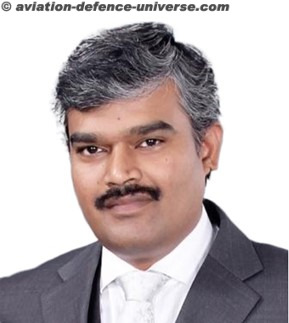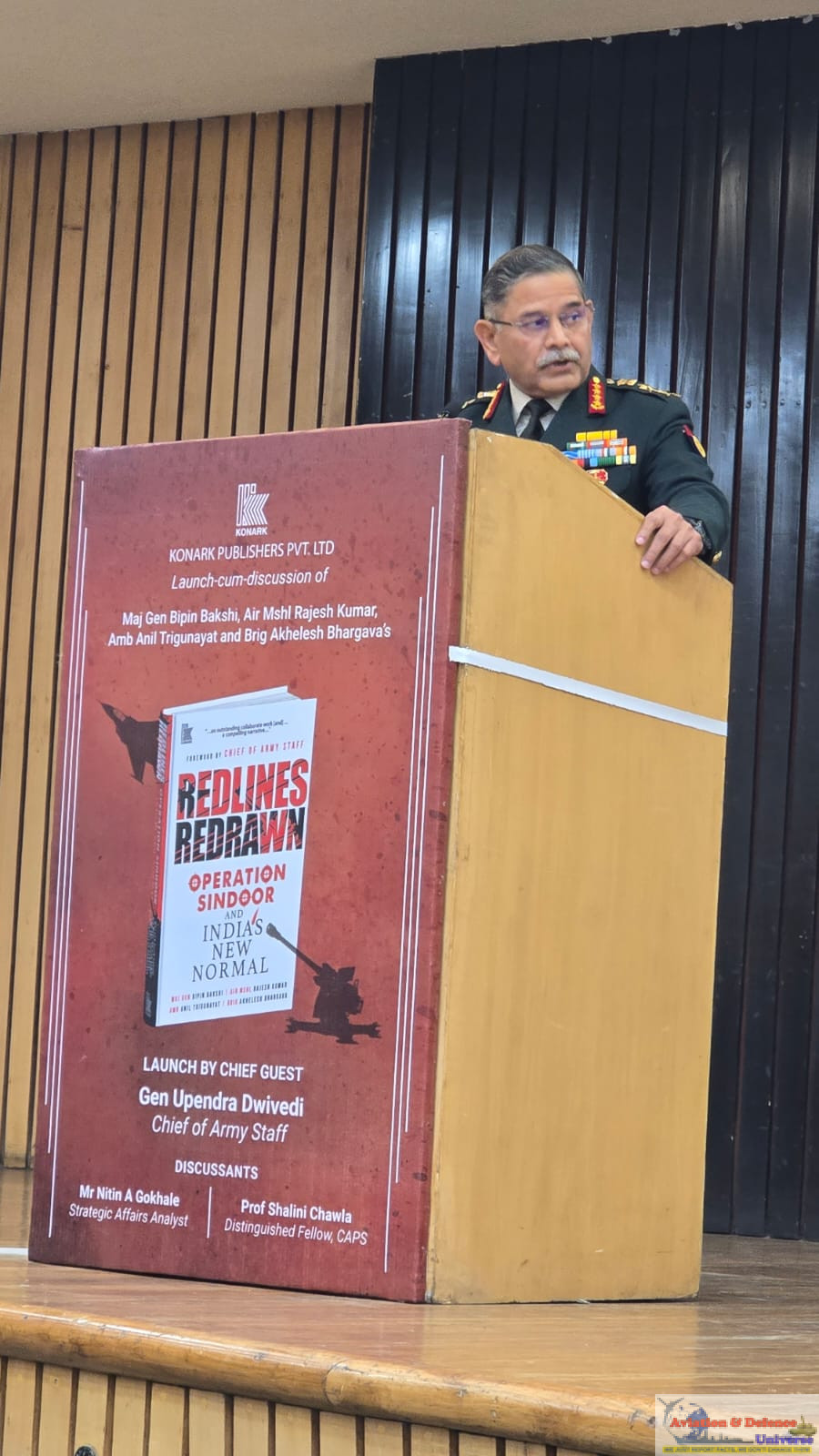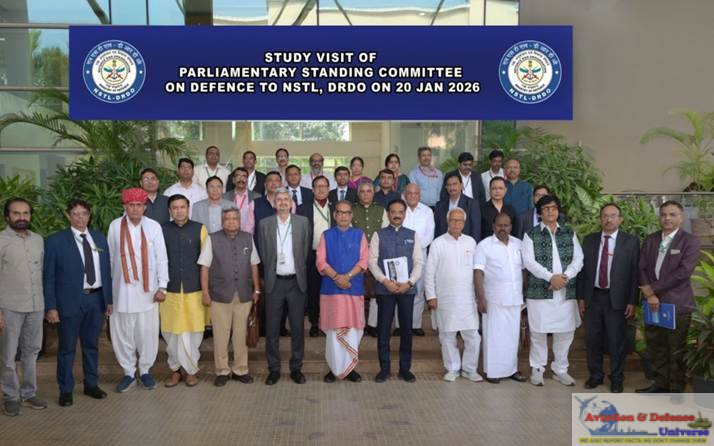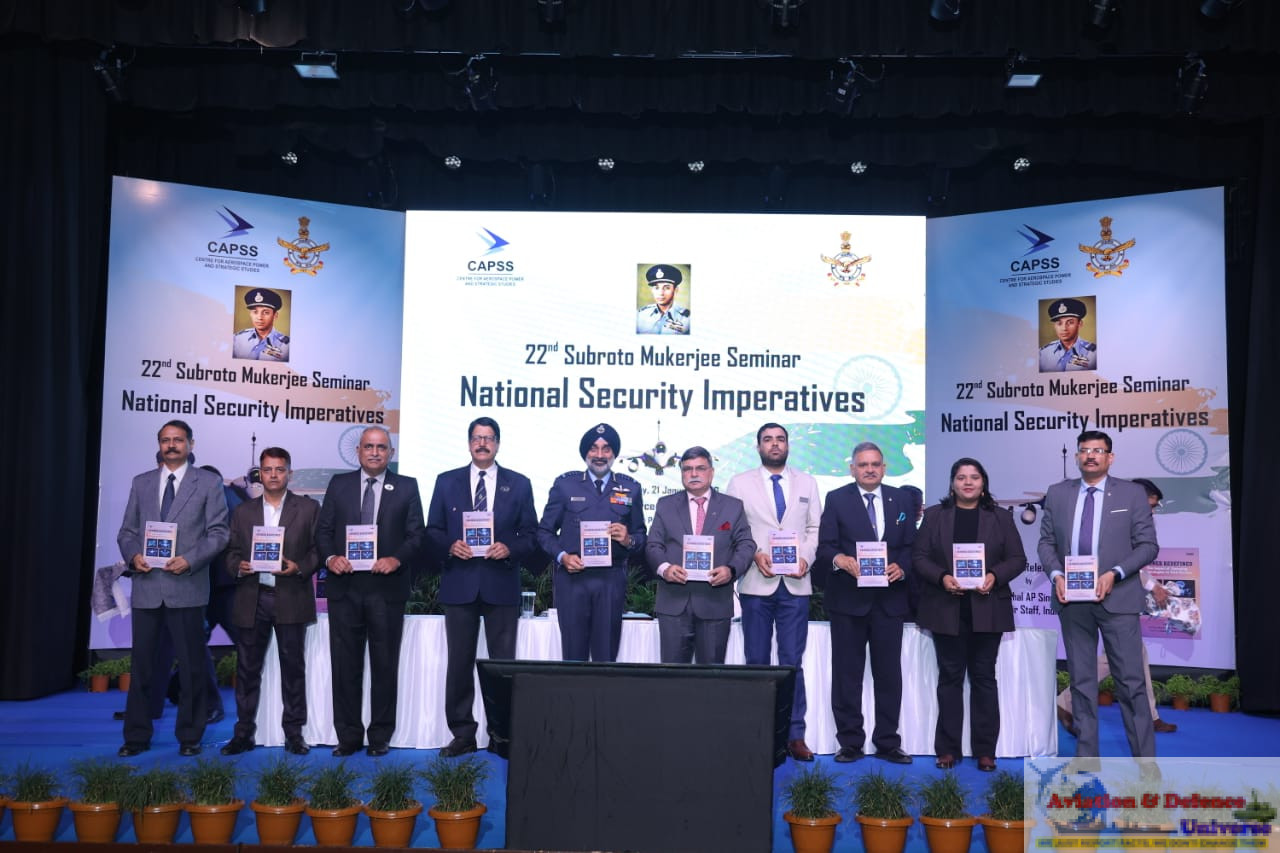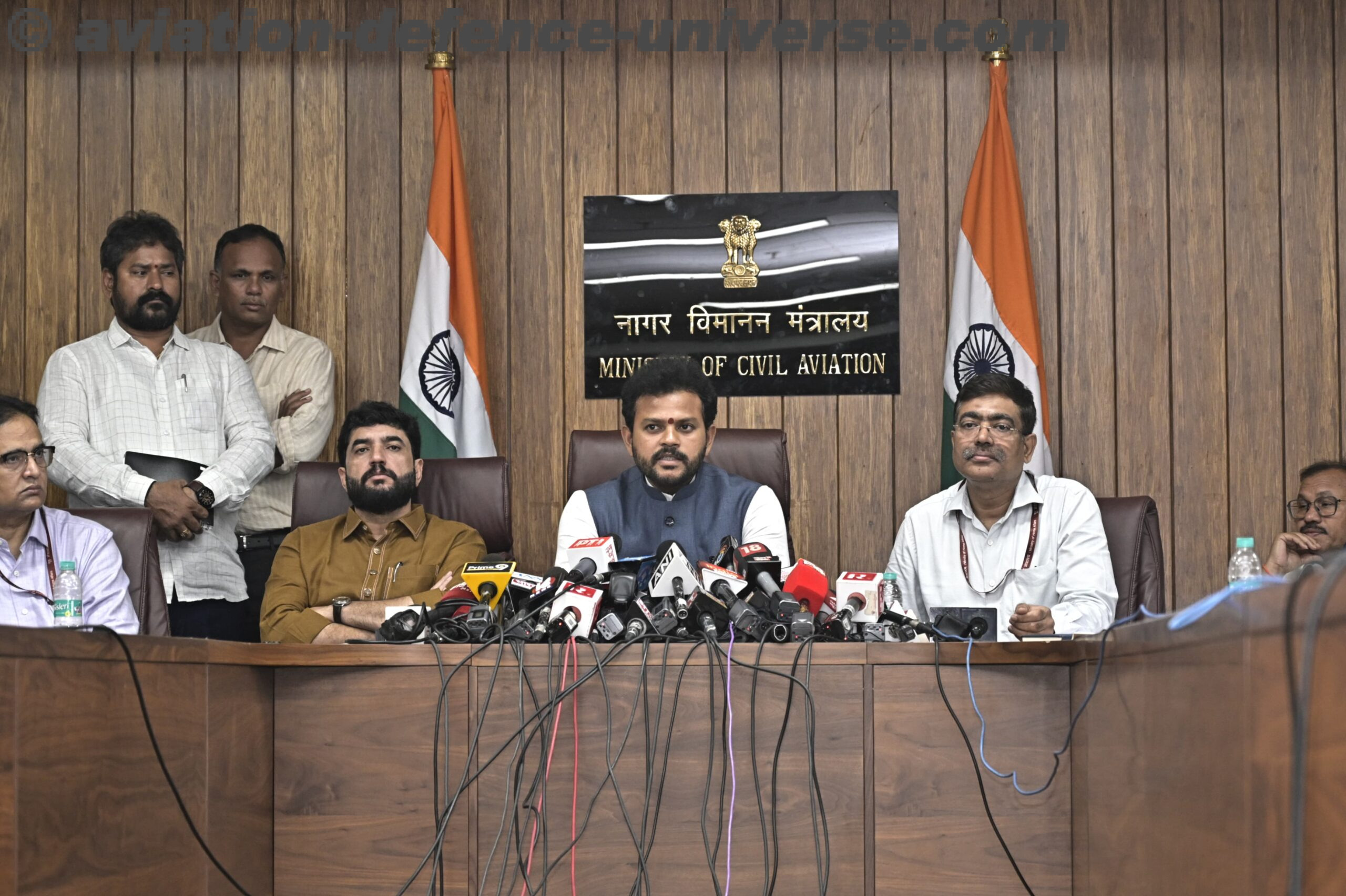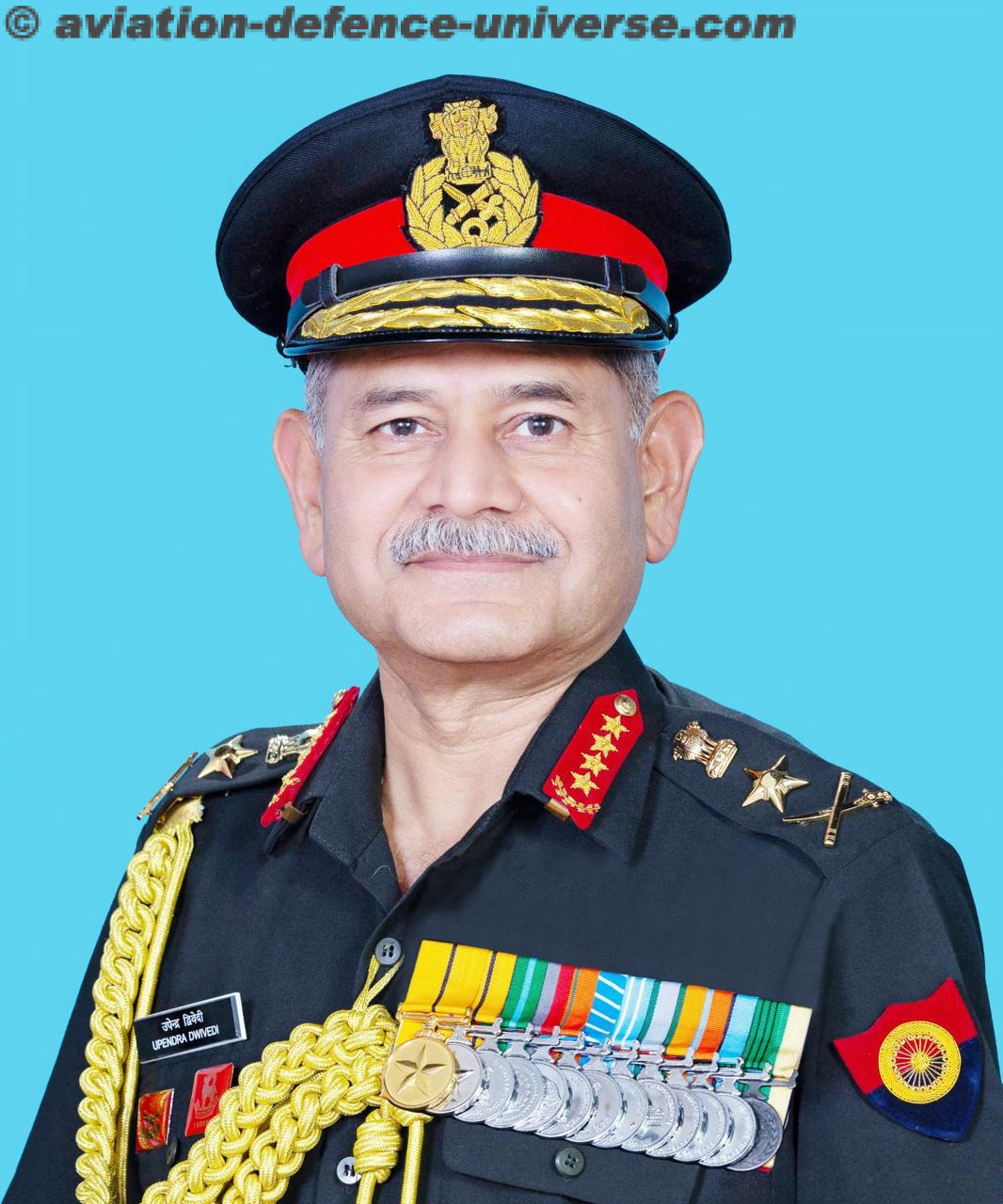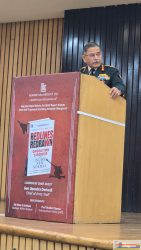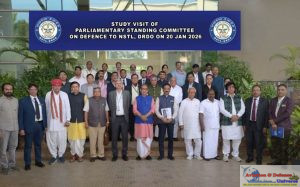- Day 1 Marked by Protests Over Israeli Defence Exhibitors
- Record breaking visitors and exhibitors at 2025 DSEI
By Sangeeta Saxena
Excel Centre, London. 09 September 2025. The day today opened to the largest DSEI seen since it’s inception. Day 1 of DSEI 2025 marked a historic expansion, as the exhibition outgrew its traditional footprint at ExCeL London, taking over both the original halls and the newly built extensions. The scale of the event was testament to its position as one of the world’s most significant defence and security showcases. Overflowing crowd, queues for hours to enter if one did not have a printed pass and surprisingly more than half the show seemed to be in the serpentine queues. Unbelievable queues at the food court outlets. Yhis was indeed a DSEI with a difference.
 As always the show opened to anti-arms protests, a day in advance. On the opening day of Defence and Security Equipment International (DSEI) 2025 at ExCeL London, hundreds of demonstrators gathered in protest, with organisers claiming that over 500 activists had “blockaded and shut down the main gate” of the UK’s largest arms fair, leading to three arrests on Tuesday. The protest centred on the participation of more than 50 Israeli weapons companies, including major manufacturers such as Elbit Systems, Rafael, and Israel Aerospace Industries, despite the UK government’s decision to block official Israeli delegations from attending. Protesters, many waving Palestinian flags and carrying banners that read “Stop arming Israel,” “War criminals this way,” and “Stop the arms fair, stop fuelling wars and genocides,” accused DSEI of being the “central marketplace from which Gaza is being obliterated,” as police moved in to contain the demonstrations.
As always the show opened to anti-arms protests, a day in advance. On the opening day of Defence and Security Equipment International (DSEI) 2025 at ExCeL London, hundreds of demonstrators gathered in protest, with organisers claiming that over 500 activists had “blockaded and shut down the main gate” of the UK’s largest arms fair, leading to three arrests on Tuesday. The protest centred on the participation of more than 50 Israeli weapons companies, including major manufacturers such as Elbit Systems, Rafael, and Israel Aerospace Industries, despite the UK government’s decision to block official Israeli delegations from attending. Protesters, many waving Palestinian flags and carrying banners that read “Stop arming Israel,” “War criminals this way,” and “Stop the arms fair, stop fuelling wars and genocides,” accused DSEI of being the “central marketplace from which Gaza is being obliterated,” as police moved in to contain the demonstrations.
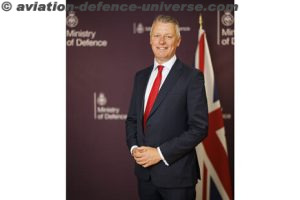 Minister of State for Defence Luke Pollard MP extended a special welcome as the doors opened to DSEIUK2025, highlighting the event as a unique platform to showcase the very best in defence, innovation, and technology. He emphasised DSEI’s power to unite political leaders, industry experts, and military personnel in strengthening partnerships, driving innovation, and ensuring the UK remains at the forefront of global defence, while expressing his anticipation of welcoming participants over the coming days.
Minister of State for Defence Luke Pollard MP extended a special welcome as the doors opened to DSEIUK2025, highlighting the event as a unique platform to showcase the very best in defence, innovation, and technology. He emphasised DSEI’s power to unite political leaders, industry experts, and military personnel in strengthening partnerships, driving innovation, and ensuring the UK remains at the forefront of global defence, while expressing his anticipation of welcoming participants over the coming days.
This year’s edition saw 42% of exhibitors participating for the first time, many of them small and medium-sized enterprises (SMEs) eager to break into the global defence market. With over 700 SMEs on display, it was the largest SME presence in DSEI’s history.
The newly launched Tech Zone highlighted startups working in cyber, autonomy, and aerospace innovation, while the UK Ministry of Defence introduced its new “single front door” for SMEs, aimed at simplifying engagement with DSTL, DE&S, and other defence agencies. Officials noted that while not every startup would succeed, many had the potential to scale into unicorns, driving the UK’s defence technology edge.
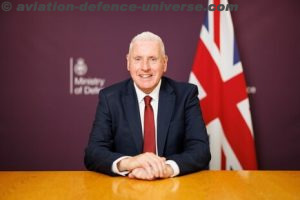 Lord Coaker , Minister of State (Minister for the House of Lords) for Defence, while speaking at DSEI 2025 inauguration, highlighted a £400 million UK Defence Innovation budget, alongside more than £4 billion being invested in autonomous systems, nearly £1 billion in directed energy weapons, and 10% of procurement funds ringfenced for novel technologies. He confirmed the launch of the Office for Small Business Growth, with SME spending targets raised by 50%, committing £7.5 billion to SMEs by 2028.
Lord Coaker , Minister of State (Minister for the House of Lords) for Defence, while speaking at DSEI 2025 inauguration, highlighted a £400 million UK Defence Innovation budget, alongside more than £4 billion being invested in autonomous systems, nearly £1 billion in directed energy weapons, and 10% of procurement funds ringfenced for novel technologies. He confirmed the launch of the Office for Small Business Growth, with SME spending targets raised by 50%, committing £7.5 billion to SMEs by 2028.
He reaffirmed the government’s plan to raise defence spending to 2.6% of GDP by 2027 and 3.5% by 2035, insisting that taxpayers deserved to see the benefits of higher spending through security, opportunities, and jobs. He announced an £11 billion annual “Invest” budget, new Defence Growth Deals worth £250 million across five regions, and £1.4 billion in foreign direct investment since 2024, creating up to 1,700 jobs.
Two of the Defence Growth Deal locations were unveiled: Plymouth, to become a centre of maritime excellence and AI-enabled autonomy, and South Yorkshire, to reinforce its role in high-grade defence materials and components. He also announced plans for regional defence and security clusters, backed by £1.5 million, to unite primes, SMEs, academia, and local authorities to solve capability challenges.
 General Sir Jim Hockenhull, Commander of the newly created Cyber & Specialist Operations Command (CSOC), speaking to a global audience of industry leaders, military partners, and policymakers, outlined how CSOC was designed to reshape the way the UK prepared for, deterred, and fought future threats. The General began by describing it as a privilege to speak at one of the most important defence gatherings in the world and as the first Commander of CSOC. He said that the Command had been formally stood up just the previous week on behalf of the Secretary of State for Defence and the Chief of the Defence Staff. This, he explained, represented a transformation in posture, purpose, and mindset—recognising a reality where the UK was in constant contact in the cyber and electromagnetic (EM) domain, and where operations were an “always on” 24/7 mission.
General Sir Jim Hockenhull, Commander of the newly created Cyber & Specialist Operations Command (CSOC), speaking to a global audience of industry leaders, military partners, and policymakers, outlined how CSOC was designed to reshape the way the UK prepared for, deterred, and fought future threats. The General began by describing it as a privilege to speak at one of the most important defence gatherings in the world and as the first Commander of CSOC. He said that the Command had been formally stood up just the previous week on behalf of the Secretary of State for Defence and the Chief of the Defence Staff. This, he explained, represented a transformation in posture, purpose, and mindset—recognising a reality where the UK was in constant contact in the cyber and electromagnetic (EM) domain, and where operations were an “always on” 24/7 mission.
He noted that warfare was undergoing profound change, from grey-zone tactics and disinformation to drones, artificial intelligence, and contested electromagnetic environments. Cyberattacks were a daily reality, adversaries were probing UK networks and infrastructure, and disinformation was being weaponised to undermine trust. The 2025 Strategic Defence Review (SDR), he stressed, made clear that the UK must accelerate warfighting readiness and always act in concert with NATO allies.
The opening day carried forward the show’s theme of “Preparing the Future Force.” Speakers emphasised that DSEI was no longer only about platforms but about the entire ecosystem of technologies, people, and partnerships required to secure the future battlespace. The tone was set for a week of discussions bridging startups, supply chains, front-line forces, and international partners.
The newly restructured Cyber and Specialist Operations Command (CSOC) made its presence felt, outlining its leadership role in the cyber and electromagnetic (EM) domain. The command showcased its “digital targeting web” concept and the capabilities of the Defence Cyber and Electromagnetic Force, described as “Always On” and already critical to operations in Ukraine and beyond. Senior leaders stressed the growing importance of electromagnetic warfare as a distinct but interlinked domain with cyber operations.
 Day 1 also confirmed the show’s global reach, with 170 international delegations in attendance. DSEI once again cemented itself as a hub for defence diplomacy. The UK Government reiterated that no Israeli delegations would attend, though Israeli companies continued to exhibit under export control regulations. Alongside the exhibition, leaders used the platform to reinforce NATO unity, discuss lessons from Ukraine, and push forward industrial and diplomatic partnerships.
Day 1 also confirmed the show’s global reach, with 170 international delegations in attendance. DSEI once again cemented itself as a hub for defence diplomacy. The UK Government reiterated that no Israeli delegations would attend, though Israeli companies continued to exhibit under export control regulations. Alongside the exhibition, leaders used the platform to reinforce NATO unity, discuss lessons from Ukraine, and push forward industrial and diplomatic partnerships.
The event opened against the backdrop of sharply rising UK defence spending. Defence budgets, at 2.38% of GDP in 2025, were confirmed to be on track to rise to 3.5% by 2035—an increase from £65 billion today to more than £100 billion over the next decade.
At the same time, the UK’s defence exports, valued at £14 billion in 2024, were projected to double by 2035, further highlighting the country’s ambition to link security policy with industrial and economic growth.
Organisers and speakers alike stressed that DSEI 2025 was more than just an exhibition. Day 1 set the tone for a week that would not only showcase cutting-edge platforms and technologies but also highlight the strategic role of SMEs, new technologies, and international partnerships in shaping the future of defence and security.








